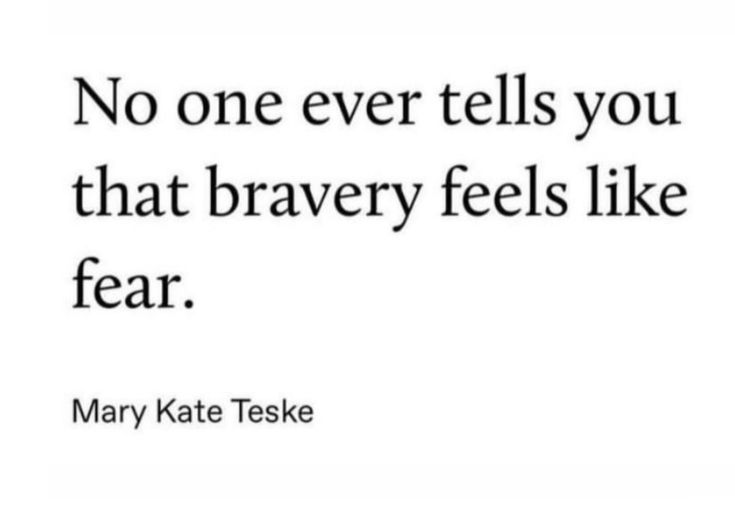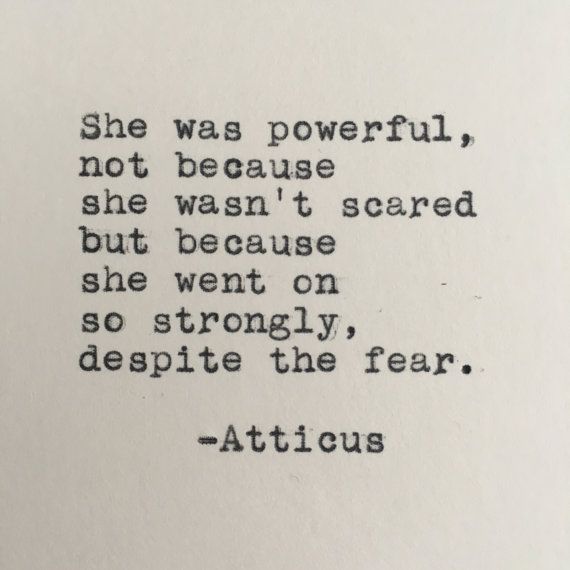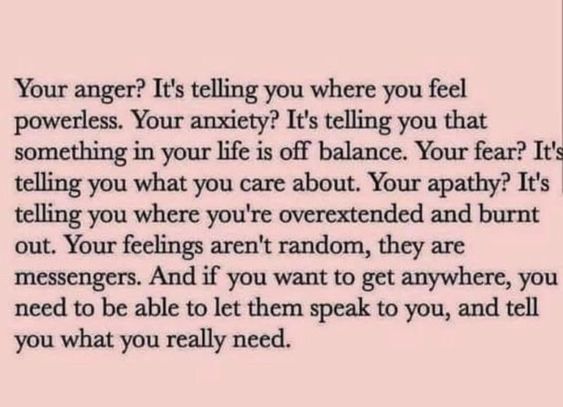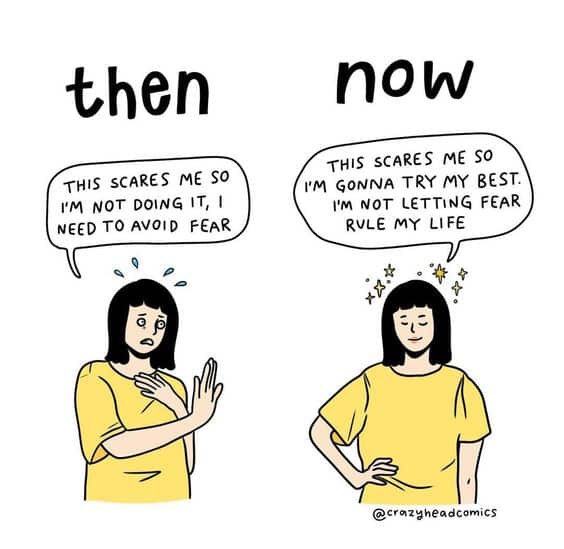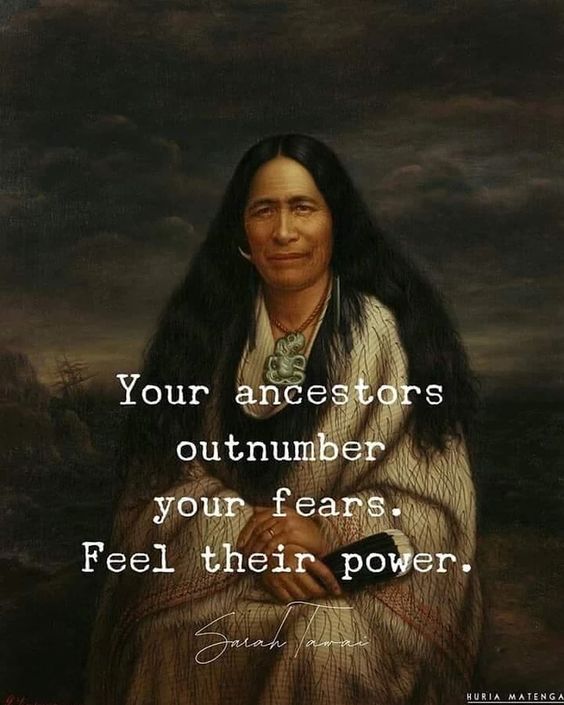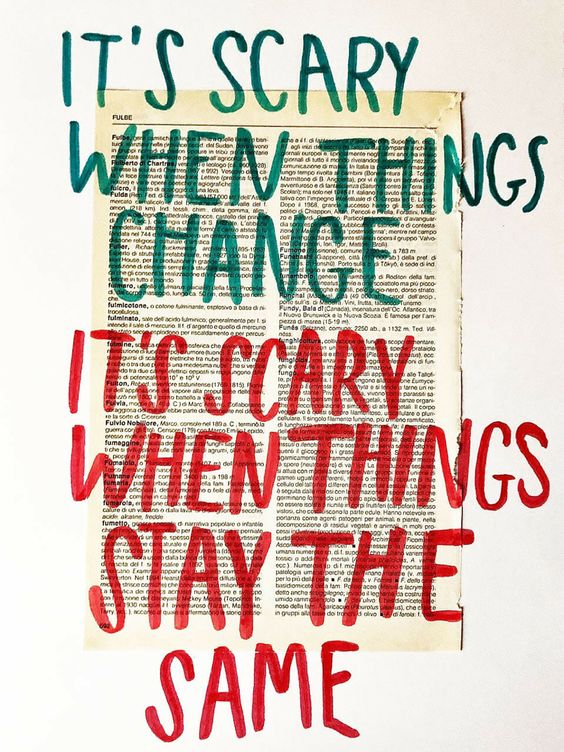“Life can only be lived dangerously—there is no other way to live it. It is only through danger that life attains maturity, growth. One needs to be an adventurer, always ready to risk the known for the unknown. That’s what being a seeker is all about. But once one has tasted the joys of freedom and fearlessness, one never repents because then one knows what it means to live at the optimum. Then one knows what it means to burn your life’s torch from both ends together. And even a single moment of that intensity is more gratifying than a whole eternity of mediocre living.”
Osho, Everyday Osho (Page 310)
“To fear love is to fear life, and those who fear life are already three-parts dead.”
Bertrand Russell, via The Midnight Library (Page 36)
“When we deny fear, our problems follow us. In fact, they’re probably getting bigger, and bigger, and at some point something will force us to deal with them. When all else fails, pain does make us pay attention. If we don’t learn from the signal that alerts us to a problem, we’ll end up learning from the results of the problem itself, which is far less desirable. But if we face our fear—we stay, we deal with the fire, we have the tough conversation—we become stronger as a result.”
Jay Shetty, Think Like A Monk (Page 62)
“Ask yourself: ‘What am I afraid of losing?’ Start with the externals: Is it your car, your house, your looks? Write down everything you think of. Now think about the internals: your reputation, your status, your sense of belonging? Write those down too. These combined lists are likely to be the greatest sources of pain in your life—your fear of having these things taken away. Now start thinking about changing your mental relationship with those things so that you are less attached to them. Remember—you can still fully love and enjoy your parter, your children, your home, your money, from a space of nonattachment. It’s about understanding and accepting that all things are temporary and that we can’t truly own or control anything, so that we can fully appreciate these things and they can enhance our life rather than be a source of griping and fear.”
Jay Shetty, Think Like A Monk (Page 57)
“When you deal with fear and hardship, you realize that you’re capable of dealing with fear and hardship. This gives you a new perspective: the confidence that when bad things happen, you will find ways to handle them. With that increased objectivity, you become better able to differentiate what’s actually worth being afraid of and what’s not.”
Jay Shetty, Think Like A Monk (Page 51)
“Being scared of exam results was what I call a branch. As you develop your relationship with your fear, you’ll have to distinguish between branches—the immediate fears that come up during your self-interview—and the root. Tracking my fear of exam results and the other ‘branch’ fears that appeared led me to the root: fearing I couldn’t make my parents happy.”
Jay Shetty, Think Like A Monk (Page 49)
“We have three core emotional needs, which I like to think of as peace, love, and understanding. Negativity—in conversation, emotions, and actions—often springs from a threat to one of the three needs: a fear that bad things are going to happen (loss of peace, a fear of not being loved (loss of love), or a fear of being disrespected (loss of understanding).”
Jay Shetty, Think Like A Monk (Page 23)
“All paralyzed people—psychologically paralyzed, spiritually paralyzed—live life in hell. And how do they create it? The secret is that they live in fear; they only do a certain thing when there is no fear, but then there is nothing left worth doing. All that is worth doing has certain fears around it.”
Osho, Everyday Osho (Page 58)
“I’ve realized that for some reason, God placed the most beautiful things in life on the other side of our worst terrors. If we are not willing to stand in the face of the things that most deeply unnerve us, and then step across the invisible line into the land of dread, then we won’t get to experience the best that life has to offer.”
Will Smith, Will (Page 406)
“How we decide to respond to our fears, that is the person we become.”
Will Smith, Will (Page 14)
“All the things you’re worried about potentially happening in the future are in fact happening right now somewhere in the world. All the things you’re not sure you could handle… people have been handling since the beginning of time. Nothing new looms, only reruns of what you’ve already experienced or read about in the annals of history.”
Ryan Holiday, Daily Stoic Blog
“Fear is not going to protect you. Action is. Worrying is not going to protect you. Preparing is. Overthinking is not going to protect you. Understanding is. When we hold onto fear and pain after something traumatic has passed, we do it as a sort of safety net. We falsely believe that if we constantly remind ourselves of all the terrible things that we didn’t see coming, we can avoid them. Not only does this not work, but it also makes you less efficient at responding to them if they do.”
Brianna Wiest, The Mountain Is You (Page 168)
“One of the great gifts of sports is learning how to fail in public. People never go to the gym because they’re scared of looking stupid, never share their writing because they’re scared of judgment, never open their heart because they’re scared of rejection. Sports train you to face your fear.”
James Clear, Blog
